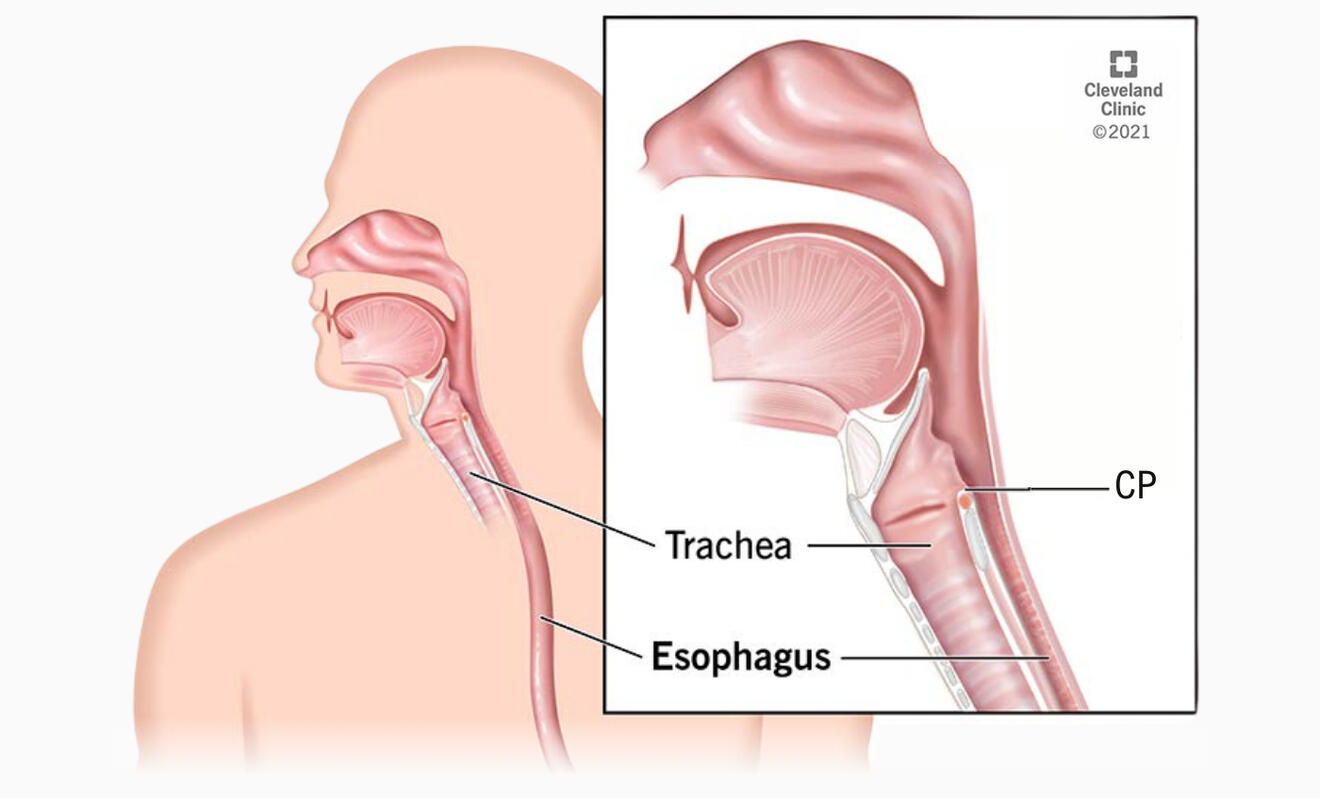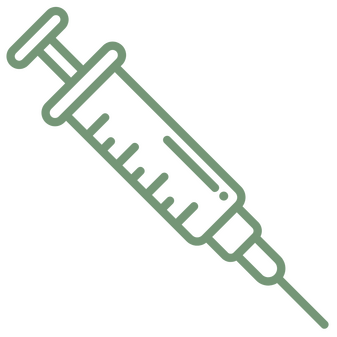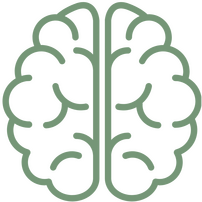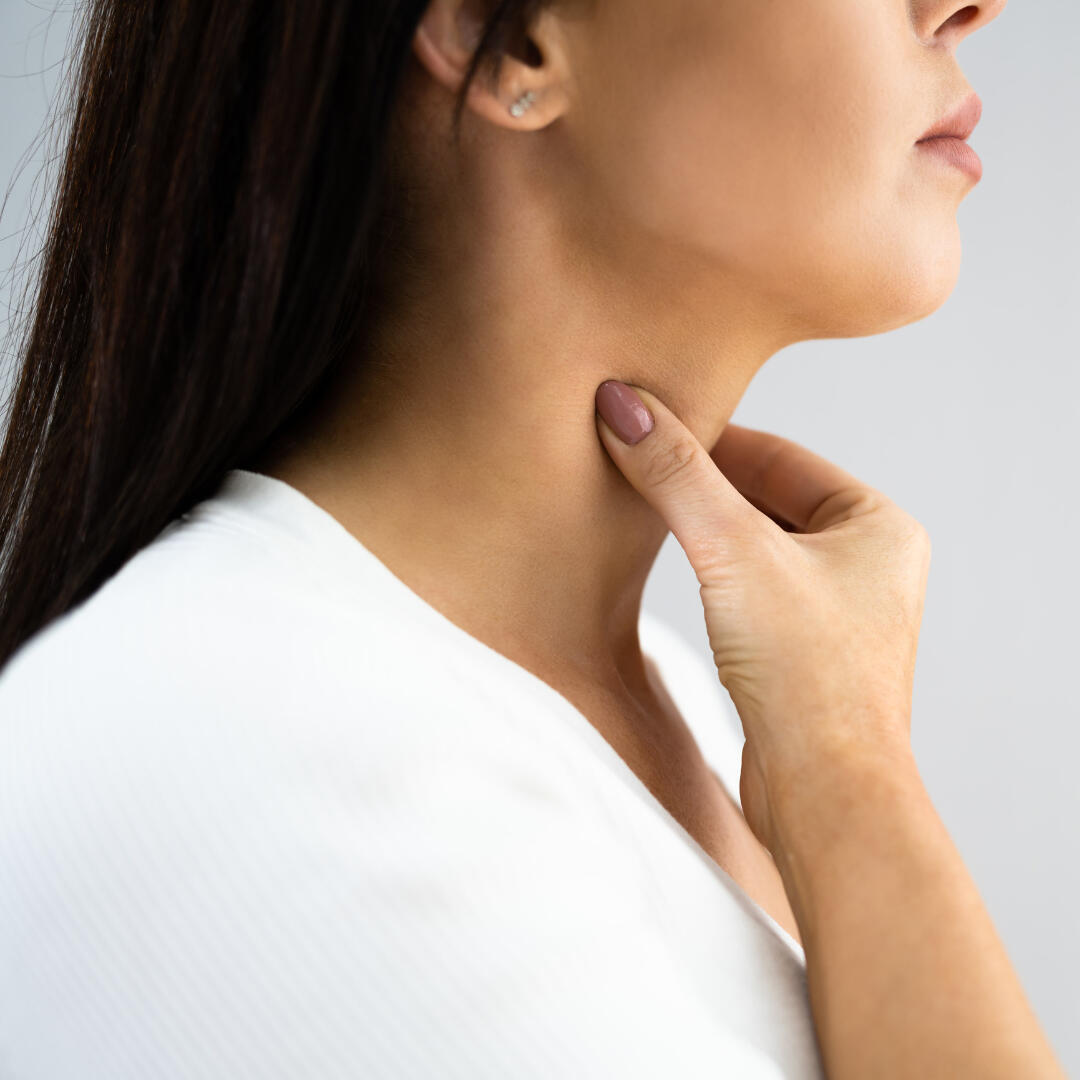
Find relief today.
Innovative, non-surgical treatment for Retrograde Cricopharyngeal Dysfunction.Now available in Pittsburgh, PA or virtually in Pennsylvania.
About R-CPD • About Therapy • Meet Your Therapist • Start Your Journey • Contact
Why can't you burp?
The Cricopharyngeus (CP) muscle is a sphincter at the top of the esophagus, the tube connecting your throat and stomach. It remains closed, relaxing for two primary and automatic processes. These are swallowing, to let food to pass through, and burping, to let built-up gas out.
Retrograde-Cricopharyngeal Dysfunction (R-CPD, or "No Burp Syndrome"), occurs when the CP muscle does not naturally relax in response to a buildup of pressure in the esophagus.

Unable to escape, excess gas can result in uncomfortable bloating, sounds from the throat, and excessive flatulence. These symptoms can be embarrassing, and may lead some to avoid certain foods and beverages as well as social situations.
Treatment is available.

Botox, a temporary muscle relaxant injected into the CP muscle, is the most common treatment for R-CPD. While highly effective, side effects can include difficulty swallowing, acid reflux, voice changes, or other surgical complications.

Therapy with a specialized speech-language pathologist is an emerging treatment that provides an alternative to Botox, without the associated risks. Therapy can also be helpful for those with lingering or recurrent R-CPD symptoms following Botox injection.
Why therapy works.
Therapy can help coordinate intentional relaxation of the cricopharyngeus (CP) with adequate pressure in the esophagus. This coordination results in a burp.

The cricopharyngeus can relax
The CP relaxes automatically every time you swallow, proving the muscle is functional, but uncoordinated.

The cricopharyngeus can be controlled
A study used manometry (pressure sensors) to show that the CP can be relaxed at will.1

The cricopharyngeus can learn
80% of patients who receive temporary Botox see benefits even after it has worn off2, indicating the muscle experiences long-term learning.

Esophageal pressure can be optimized
Therapy techniques can adjust pressure in the esophagus to find the correct balance for you.
How therapy works.
Through four core principles, R-CPD therapy adapts evidence-based techniques used to treat voice and swallowing disorders to help you burp.
1. Exercise
& Stretch
Targeted exercises and stretches build awareness and help keep muscles flexible and able to relax.


2. Massage
Personalized massages of the throat muscles can help reduce excess tension.
3. Position
Certain postures can promote cricopharyngeal relaxation and increase esophageal pressure.


4. Mindfulness
Muscle tension and stress are closely related. Through mindfulness, we can help our bodies relax.
Meet Your Therapist
Nora Mahon, MS, CCC-SLP is a Speech-Language Pathologist based in the Pittsburgh area.Nora first took an interest in behavioral treatment of R-CPD following her partner's experience being unable to burp. She developed and began piloting the R-CPD treatment protocol in 2024, and is continuing to collect initial efficacy data.
Start your journey.
Your pathway to treatment begins with a free 30 minute consultation.
Sign up below and we'll be in touch soon!
Questions? Contact us.
The information provided on this site is for educational purposes only and content included within does not substitute for professional medical advice. Always seek the advice of your physician or other qualified health care provider with any questions you may have regarding a medical condition or treatment and before undertaking a new health care regimen. Never disregard professional medical advice or delay in seeking it because of something you have read on this website. Representatives of this site are not liable for risks or issues associated with using or acting upon the information presented on this site.
1Nativ‐Zeltzer, N., Belafsky, P. C., Bayoumi, A., & Kuhn, M. A. (2019). Volitional control of the upper esophageal sphincter with high‐resolution manometry driven biofeedback. Laryngoscope investigative otolaryngology, 4(2), 264-268. PubMed.
2Hoesli, R. C., Wingo, M. L., & Bastian, R. W. (2020). The long-term efficacy of botulinum toxin injection to treat retrograde cricopharyngeus dysfunction. OTO open, 4(2), 2473974X20938342.
© 2025 Nora Mahon. All Rights Reserved.
Do you have R-CPD?
These are statements that describe peoples’ experience with R-CPD and its impact on their lives. Select the response that best describes your experience in the last 4 weeks.
This tool is for screening purposes only. Results do not constitute a diagnosis, and are not a substitute for professional medical advice.
Thanks for reaching out!
Please allow 2-3 business days for a response.
Start your journey.
Your pathway to treatment begins with a combined laryngology & speech-language pathology consultation at the UPMC Voice, Airway, & Swallow Center in Pittsburgh, PA. Make an appointment with a specialized laryngologist:
Schedule Monday or Friday afternoons to meet with Nora and the laryngologist in the same appointment.



